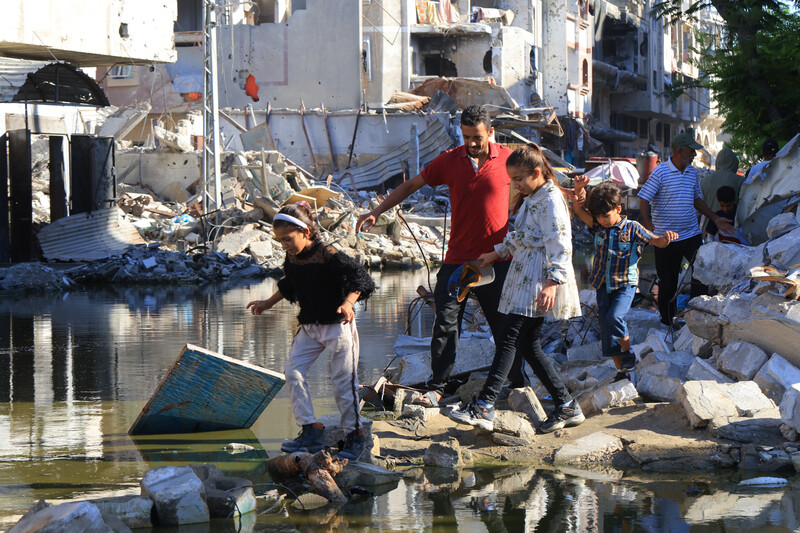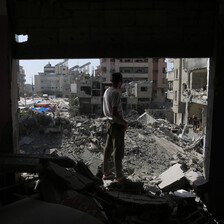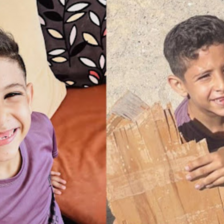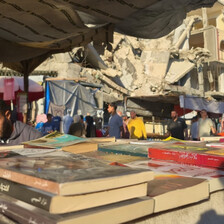The Electronic Intifada 5 July 2024

People pick their way through sewage water flowing through the streets of Khan Younis. A lack of clean water, and the near total destruction of Gaza’s infrastructure, including sewage treatment plants, has led to a surge in infectious and gastrointestinal diseases.
APA imagesI yearn for the life I used to lead before this genocide. War transcends mere bombings, missiles and destruction; it encompasses economic, social, environmental and psychological devastation.
I’ve lost touch with my sense of womanhood, feeling much older than my years. Even my appearance reflects this.
My daily routine, previously centered around caring for my children, making breakfast, ensuring they got to school before starting my work, has been completely shattered.
I’ve forgotten the simplicity of life before the war, including my food preferences and principles for raising my children. Every day, I eagerly await the moment I can return home and reclaim my former lifestyle.
I long for the simple pleasure of sitting on my bed with my kids after a shower. Now, even having a shower is hard work. Securing warm water requires gathering wood from specific locations after fetching water from distant sources.
Eight months have elapsed without electricity. Before the genocide, we were accustomed to eight hours of power daily. However, since then, Israeli forces have targeted Gaza’s only power plant as well as solar panels across the Gaza Strip. I’ve regressed to washing clothes by hand, cooking and baking over firewood. There are shortages of gas, fuel and flour.
The washing machines and refrigerators in those houses that have not been reduced to rubble serve as mere decorations or, in some cases, a sanctuary for children during their games of hide-and-seek.
Even basic activities such as charging our phones or connecting to the internet have turned into monumental challenges. We traverse long distances to find working solar panels.
Life in makeshift tents and crowded schools lacks even the most basic necessities. Days can pass without access to clean drinking water. We try to avoid unhygienic public bathrooms where queues are interminable.
An ordinary day
My children have suffered immensely during the war. They’ve had gastrointestinal issues and diarrhea due to displacement and unsanitary conditions. We’ve all lost weight since nutritious food is scarce.
My children used to enjoy eggs every morning. However, for prolonged periods, eggs were simply unavailable in the markets. When they finally became available again, they were very expensive and often spoiled.
The lack of meat and chicken has led us to depend on canned food, marking a significant change from our diet before the war.
Both my husband, a software engineer, and I, a writer and translator, have lost our jobs and livelihoods due to the internet blackout. We used to work from home with high-speed internet, which allowed me to work from my bed and quickly perform my tasks.
The war has deprived my children of their playtime and weekly visits to their grandfather’s house. Every Friday, they used to go to his house, where there was a garden, a swing and lemon, olive, orange and guava trees.
They used to gather with their cousins, play in the sand, have fun, water the trees and eat their fruit.
Israeli warplanes targeted their grandfather’s house in Beit Hanoun, leaving nothing for the children to do there now, except gather firewood. Just like that, their childhood disappeared and their games vanished. All they care about is for this genocide to end.
Playgrounds and family gatherings are replaced by the harsh realities of displacement and scarcity.
I pray for an ordinary day spent with my children at home. Yet, in Gaza City, a city plagued by perpetual conflict, the pursuit of normalcy remains an elusive dream.
Iman Abo Qamar is a content writer and translator in the Gaza Strip.




